Not Like Other Girls: Modern, Independent, Hates Cooking

“I wanted to be the modern, independent woman I saw on screen; in advertisements for sanitary pads and fairness creams. She wore suits, she played sports, and she could do anything a man could. But I never saw her cook.”
Nuriyah Johar explores her relationship with cooking; an identity at odds with the woman she wants to be, and the ‘woman in the kitchen.’ Her eschewal of tradition is a cultural experience common to most young girls in Indian households.
“I can make the best instant noodles you’ll have ever eaten. But that’s about it.”
I belong to the generation of young women who wore their ineptitude in the kitchen with pride. Not conspicuously, though; we were subtle about it. Cute. Self-effacing. We were Not Like Other Girls. It was fascinating, the way we collectively decided, with little communication or self awareness, that certain skills were best left uncultivated. Most of us eventually grew out of it, but I often revisit that phase of mine with curiosity, amusement, and most recently - compassion.
When I look back at my childhood, I see hazy vignettes of me pleading with my mother to let me help her chop the vegetables, spending hours in earnest make-believe with my toy kitchen set, and dreaming up outrageous dishes (wholly inedible, in hindsight). I remember the thrilling ritual of rolling a special ‘baby roti’ every time my grandmother was around, and the sense of accomplishment I felt when I boiled an egg by myself for the first time.
I’m not sure when something switched.
Somewhere down the line, I decided (unwittingly) that the woman I aspired to be and the ‘woman in the kitchen’ were somehow mutually exclusive. I wanted to be the modern, independent woman I saw on screen; in advertisements for sanitary pads and fairness creams. She wore suits, she played sports, and she could do anything a man could. But I never saw her cook. What I did see were the mothers around me. I grew up watching them dutifully devote their mornings and afternoons to making sure their families were well fed. I felt their sacrifice (even if they didn't). Slowly and subconsciously, cooking became a symbol of domestic stagnation. It represented a future I absolutely didn’t want for myself, and so, I stayed out of the kitchen.
Now, this secret resolve didn’t go down smoothly. Disinterest might have been palatable, but my downright refusal to learn how to cook caused friction at home - though no one ever forced me. My grandmother used the phrase “shaadi pacchi badhu seekhi jaase (she’ll learn everything once she’s married)” as a salve, almost - soothing both my mother and herself every now and then, when things got heated. The former, however, knew it wasn’t just about the food. We didn’t really need the extra set of hands in the kitchen, we had a capable cook. But this was about my complete eschewal of tradition. That’s why it stung.
Yet, through it all, I stood my ground. Stubbornly. Passionately. The indistinct yet visceral image of myself as a housewife would often swim before my eyes. Looking back, I wish I hadn’t fought it as much; I never needed to. But I had no way of knowing that now, did I?
At the time, my culinary shortcomings meant many things. They meant I came from privilege; both social and financial. They meant I had more fulfilling things to do with my time than to learn how to make dal or clean meat. They meant I was well on my way to becoming the modern woman I so desperately yearned to be. I was nothing like the subservient daughters-in-law of Indian soaps. I was more like Carrie Brawshaw who famously stored her sweaters in the oven. What a delicious idea to my naive 20-year-old self!
As the years went on, the narrative started to shift. Around me, ideals of duty were getting replaced by those of independence. Cooking was increasingly perceived as recreational and not laborious. Most importantly, we stopped disparaging womanhood (at least as much as we did in the early 2000s). Within me, it was a growing sense of agency that truly changed things, not wholly, but enough for me to see the layers of gray within what I’d previously deemed black and white. It is only in hindsight that I realize how inextricably linked my independence and insecurities were.
Today, I tell myself it's okay that I don’t like to cook. If there’s one recipe my dadi has passed on to me it's her metaphorical salve, and like every generation before me, I’ve adapted it to fit my needs. “Zarurat parse toh badhu seekhi jaise (when I really need to, I’ll teach myself how to cook)” is what I’ve made my peace with. The stove isn’t my best friend, but it isn’t the enemy either. It's like the colleague I get along with well enough at work, but who I can’t see spending time with past 6pm. And that’s fine.
*****
The other day, under the casual guidance of my mother, I prepared an aloo sabzi from scratch. Beginner-level stuff. It wasn’t nearly as flavourful as that of my mother’s, and yet, for the briefest moment, I felt once again like the young girl from the hazy vignettes, who successfully boiled her very first egg.
RECIPE FOR A HARD-BOILED EGG
Eggs
Water
Place eggs in a saucepan and add enough water to cover them.
Bring the water to a rolling boil over medium-high heat.
Reduce heat slightly and let the eggs cook for 9-12 minutes for a firm yolk.
Transfer the eggs to a bowl of ice water and let them cool for 5 minutes.
Gently tap and peel the eggs, starting from the wider end.
Rinse peeled eggs to remove any shell fragments.
Banner image: Rosalind Chang via Unsplash (eggs on plate, white counter)
Nuriyah Johar is a writer and editor based in Mumbai. She works primarily within the realm of design, and currently serves as an editor at Architectural Digest India.
ALSO ON GOYA

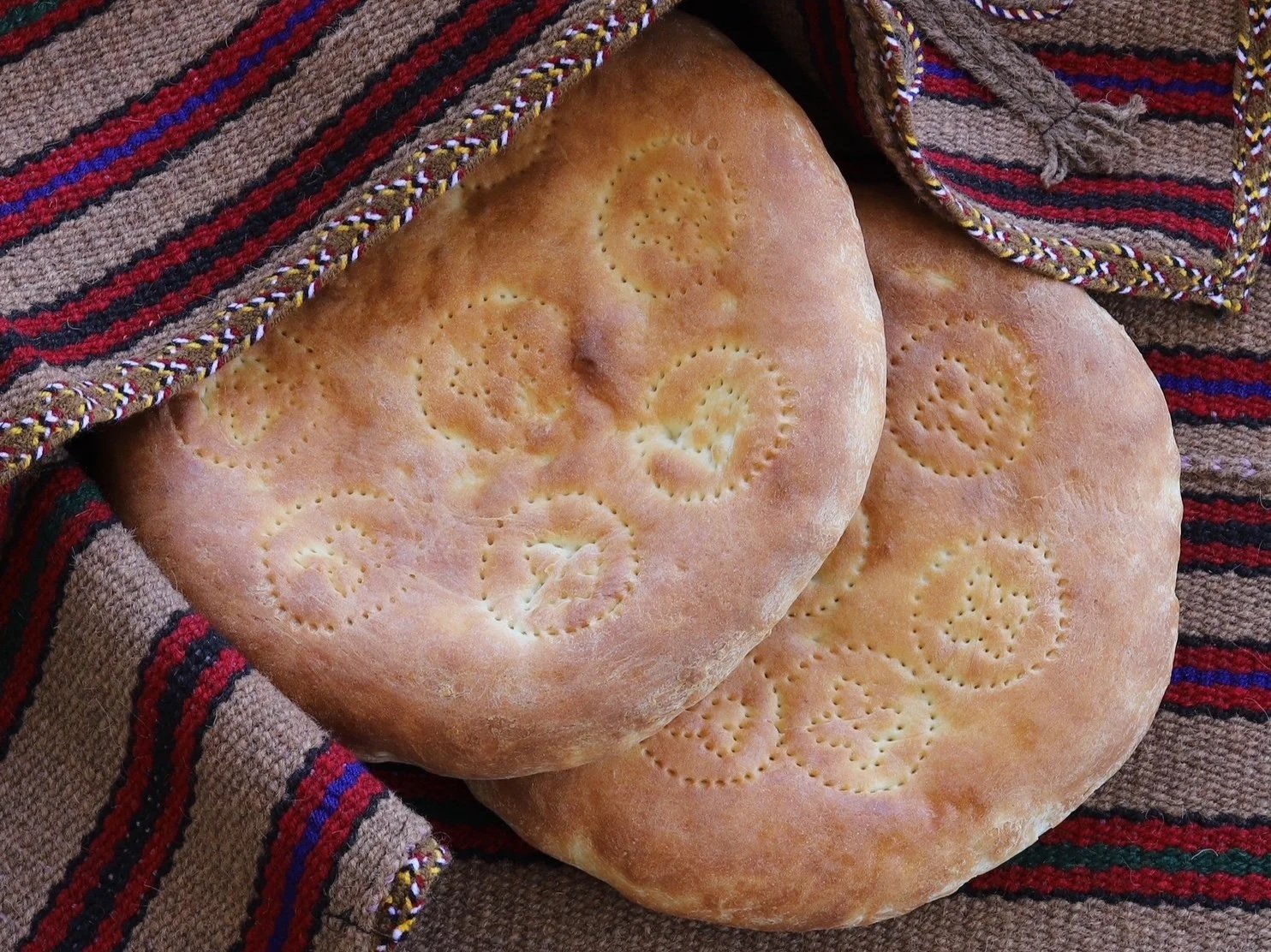
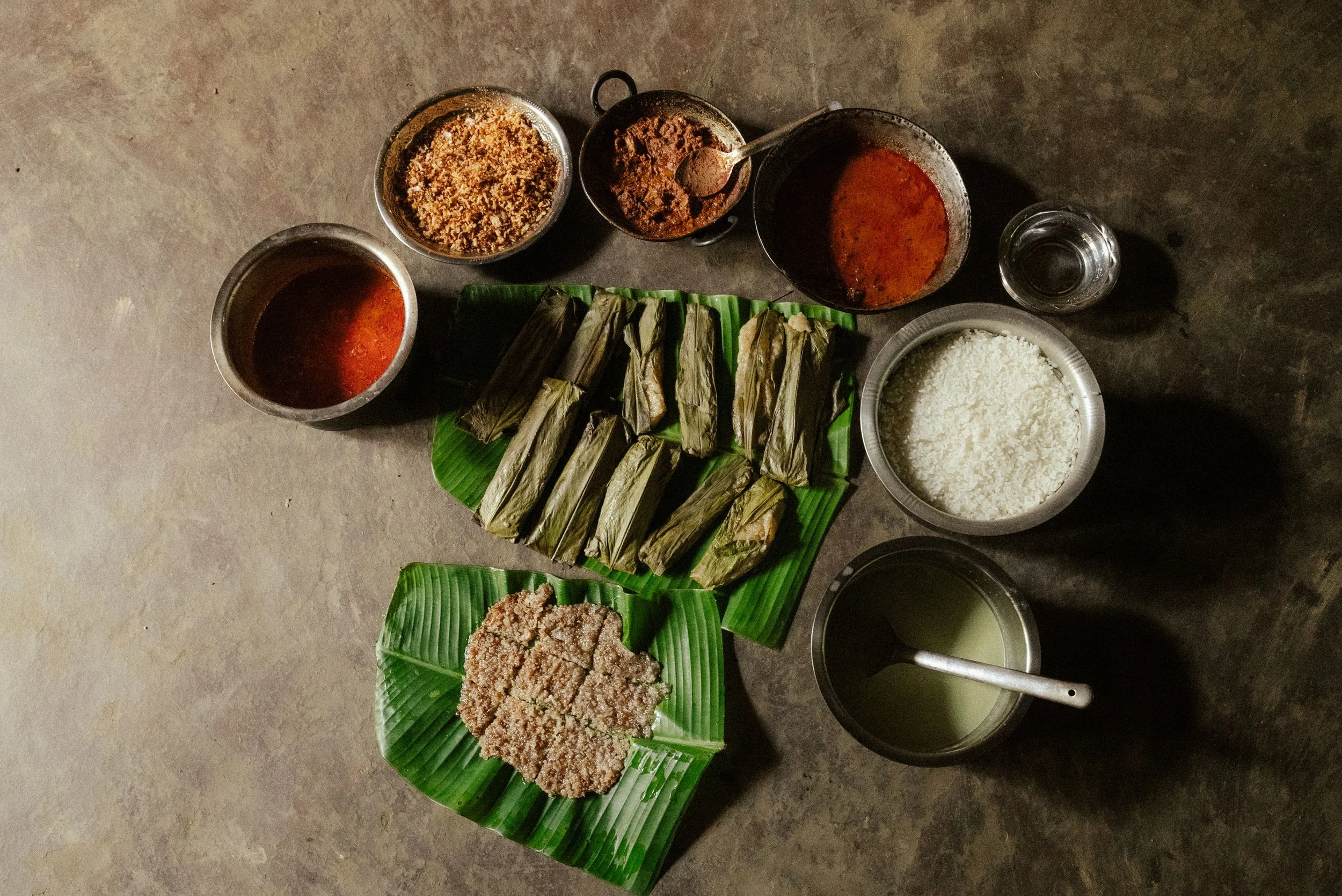
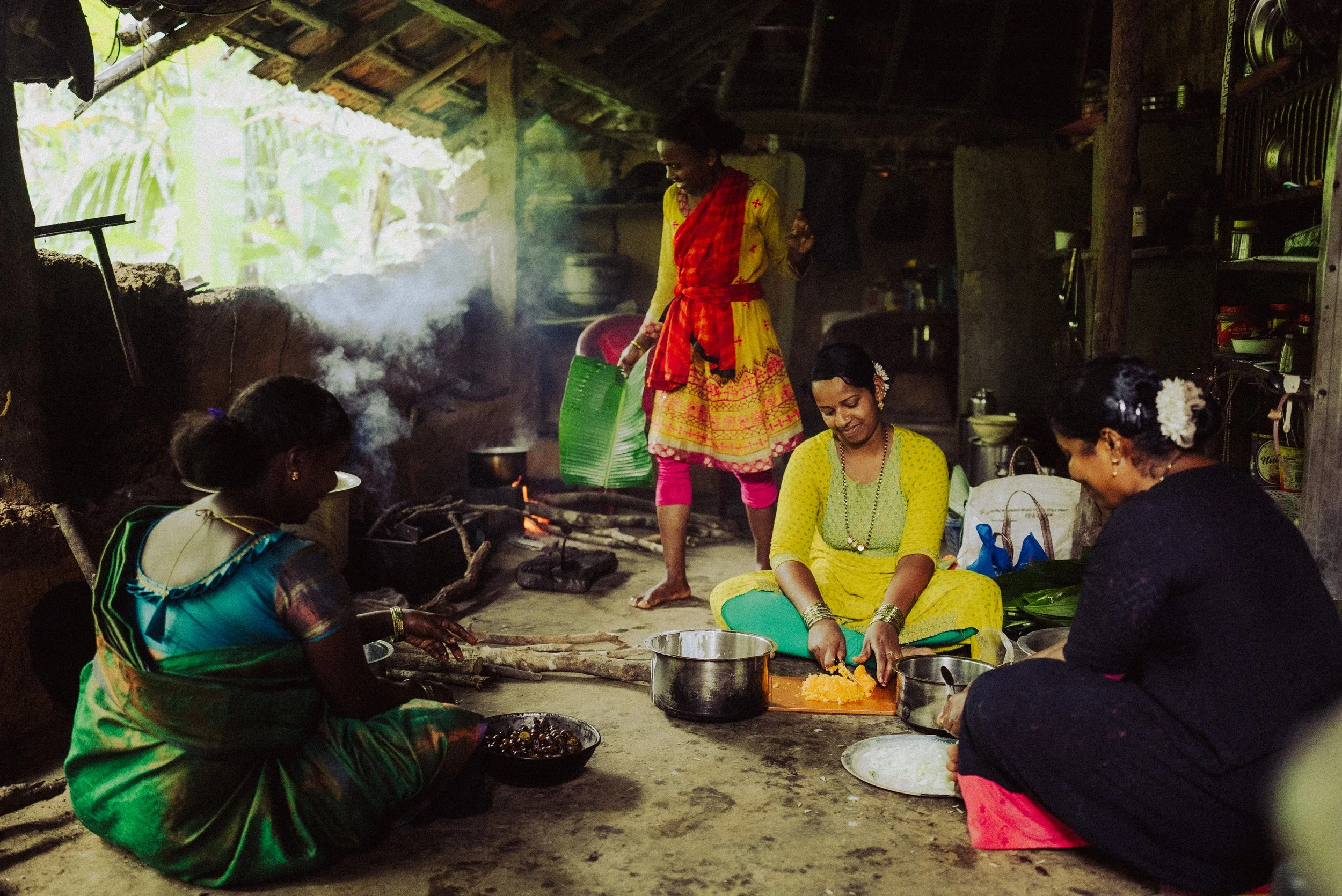
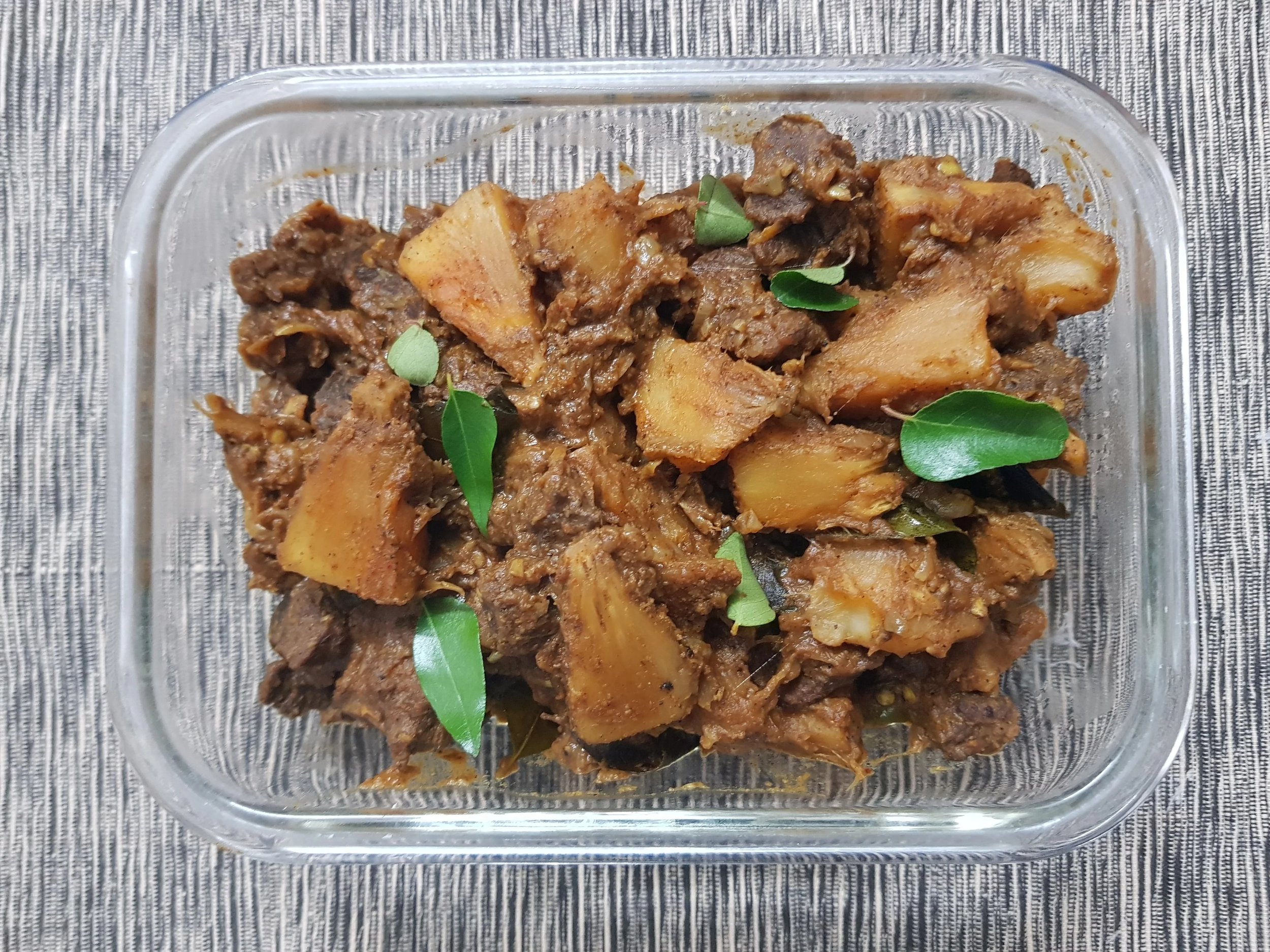
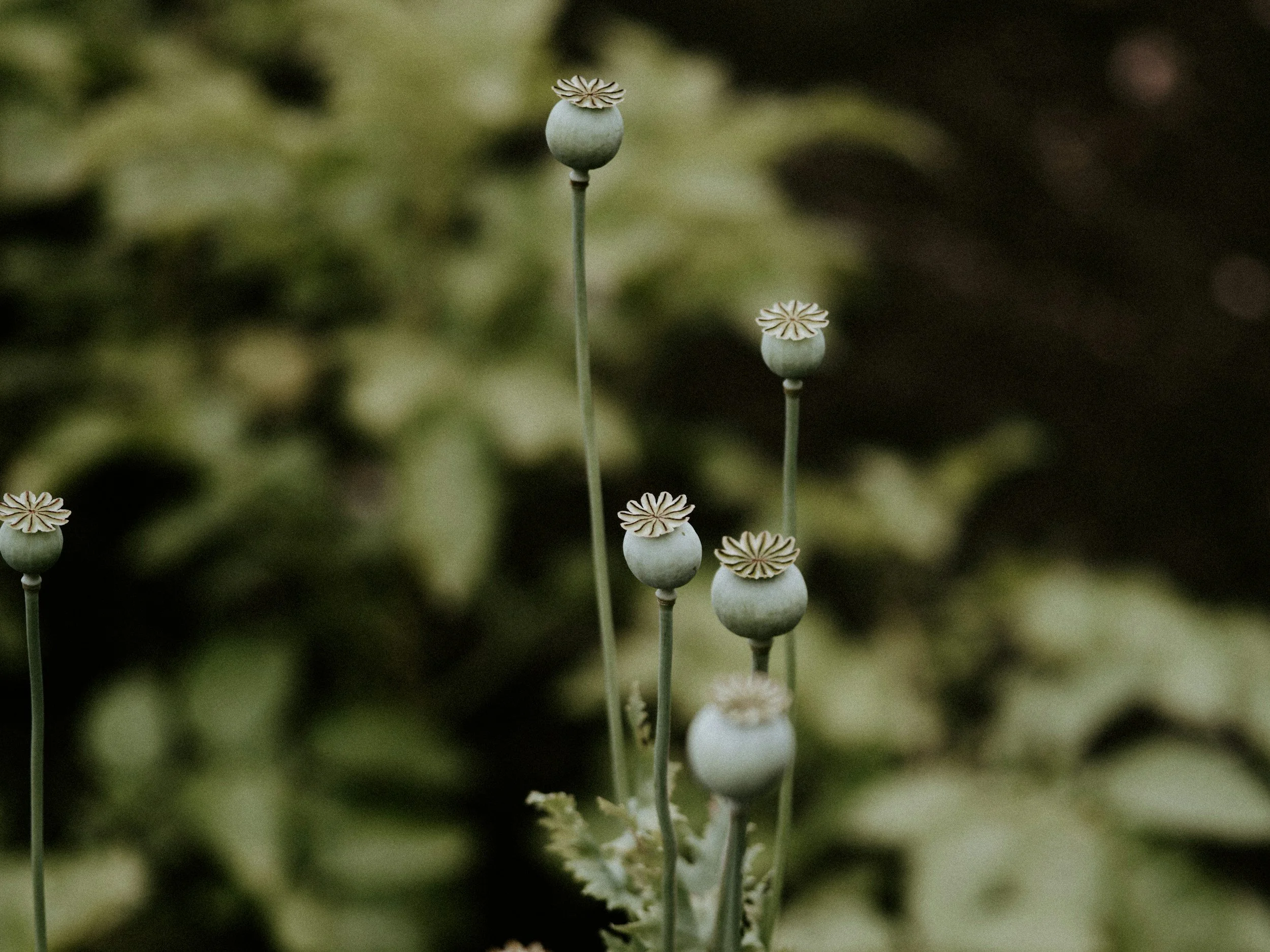
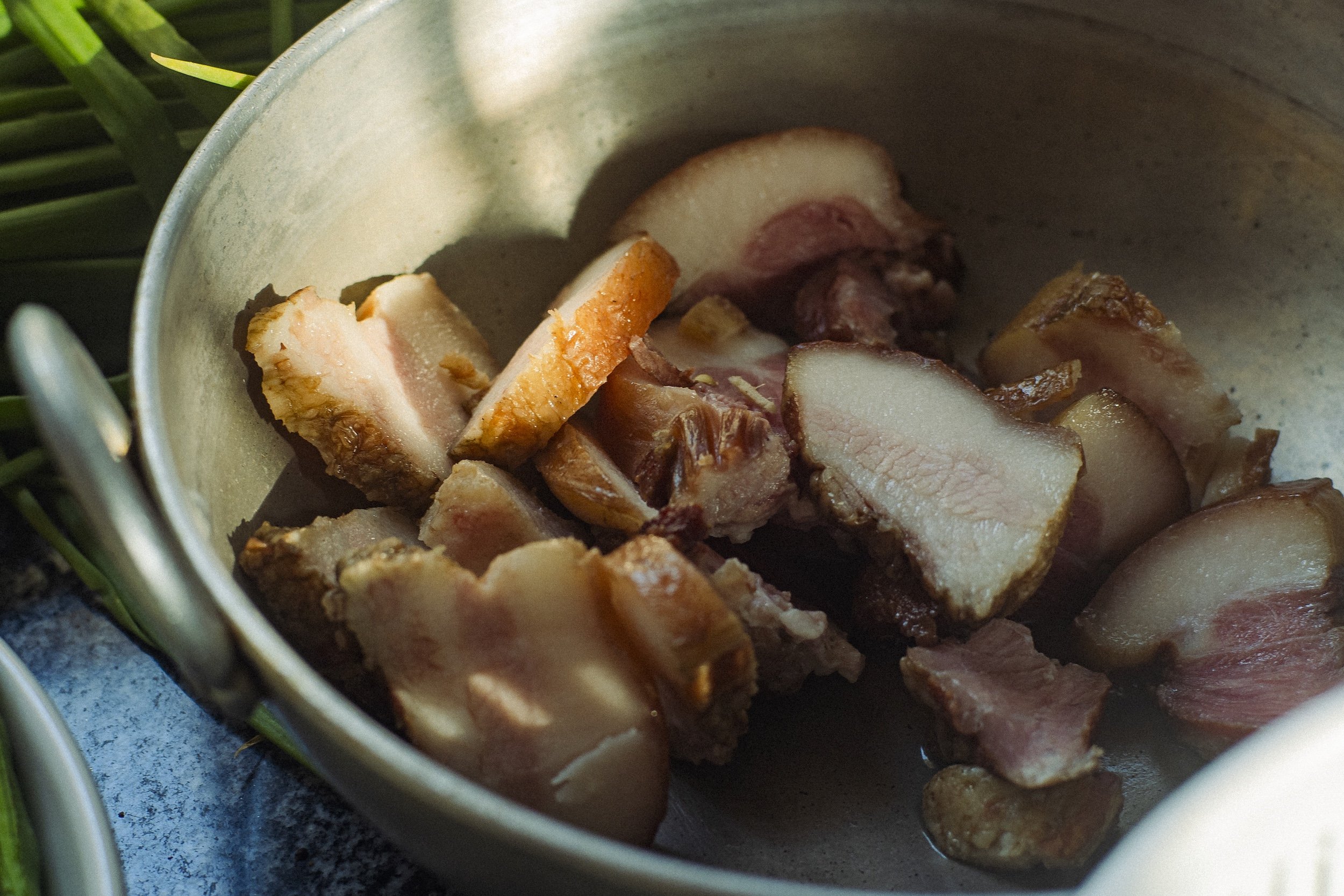
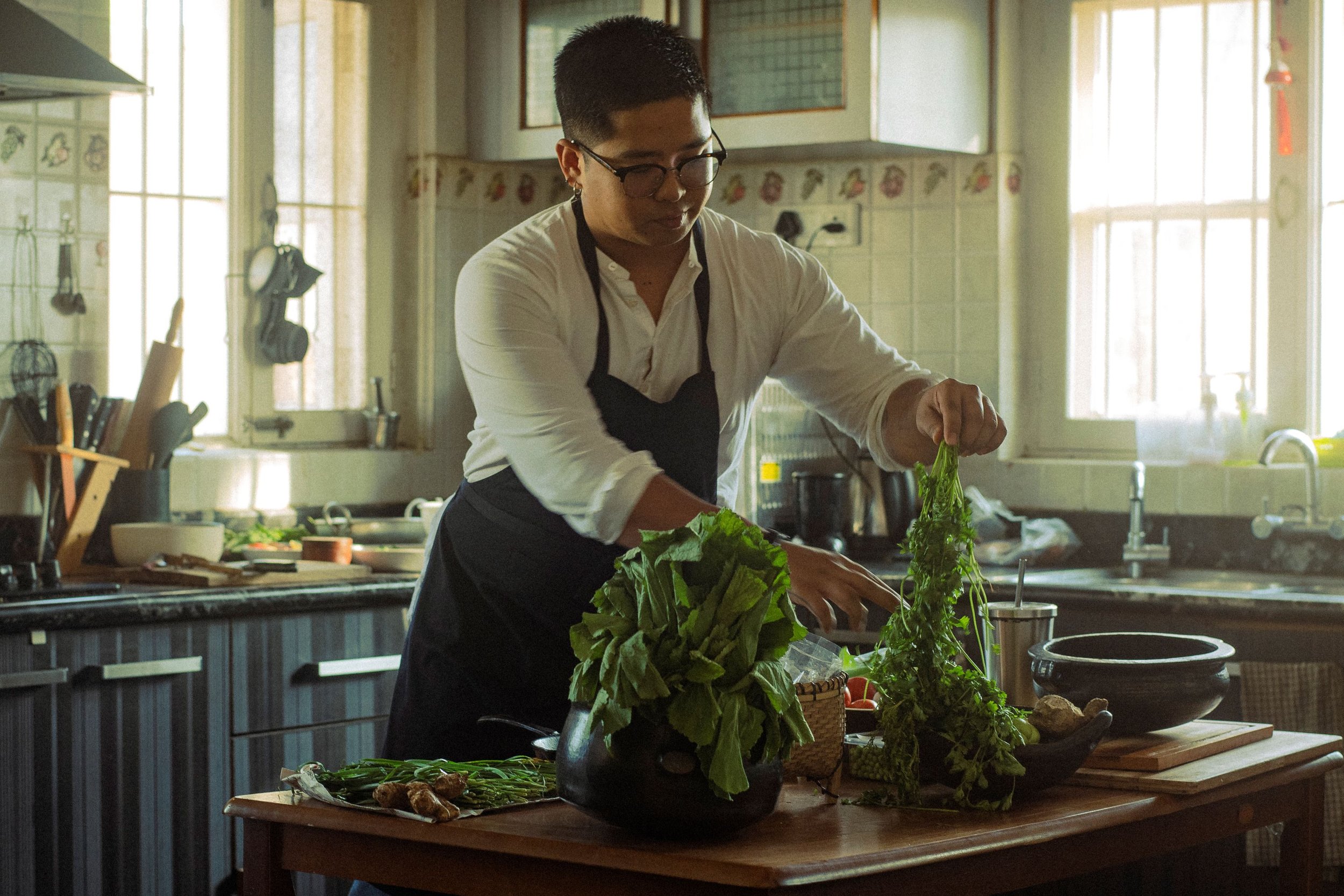
Neo-nomad cuisine at its finest | Terrence Manne